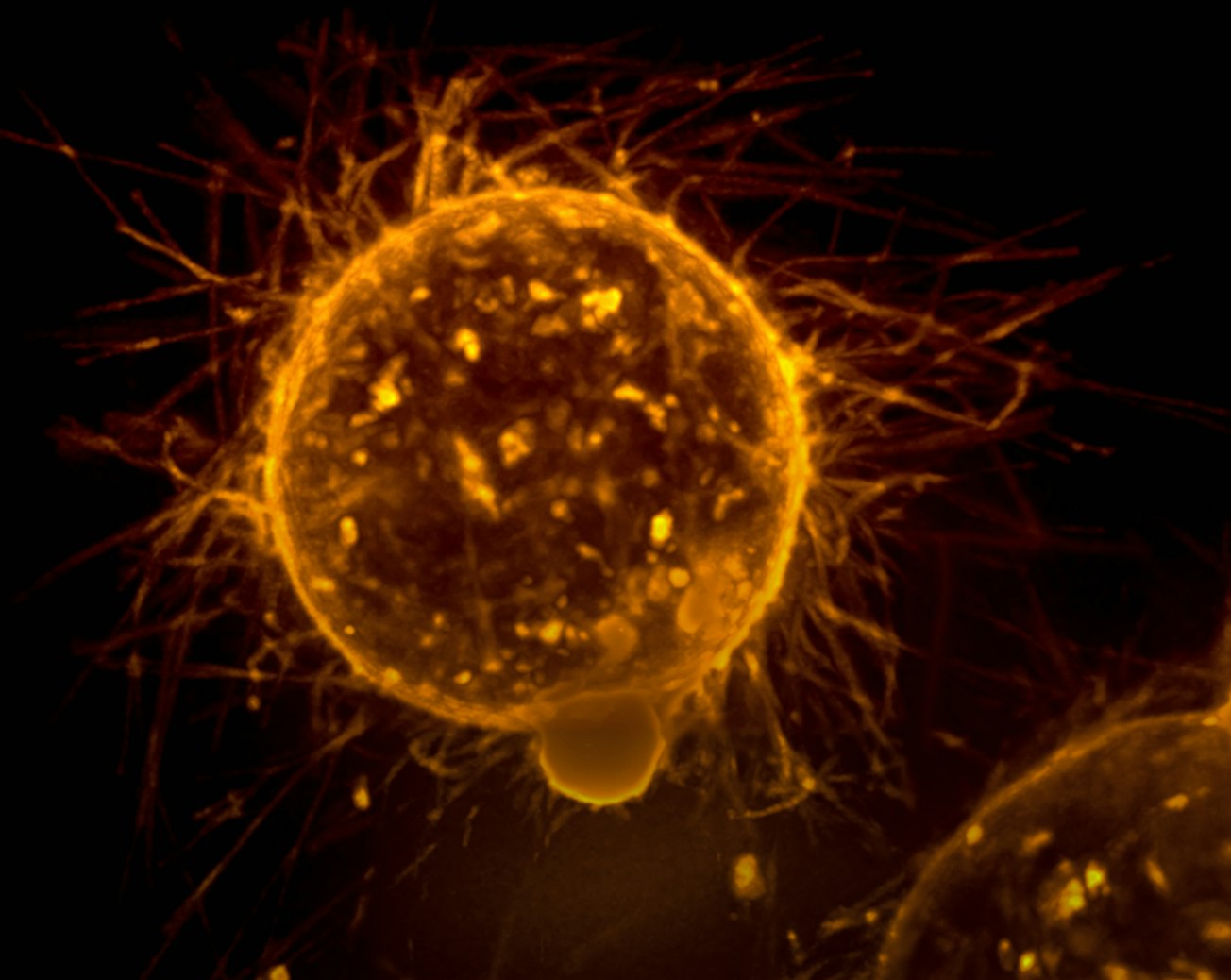What is it about?
Survival of patients with lung neoplasms is highly dependent on the absence of distant metastases, since the only curative therapy is surgical resection of localized tumors. Patients who have undergone mechanical ventilation are almost 5 times more likely to develop a metastasis than those who have not been connected to a ventilator. The results of this publication explain that this increase in metastatic spread is driven by changes in the response of cancer cells to mechanical stress induced by the ventilator. The transduction of this mechanical signal, called mechanotransduction, induces an alteration in gene transcription, promoting changes in cellular mechanisms that ultimately favor tumor survival and invasiveness. Among the altered mechanisms, the cholesterol synthesis route stands out, since this molecule is involved in the modification of the elasticity of cellular membranes. Furthermore, the study proposes a possible therapeutic application. It shows in an experimental model that treatment with Alirocumab, a drug used to treat hypercholesterolemia, reduces the ability of cancer cells to metastasize. This drug blocks the PCSK9 protein, responsible for the recycling of the LDLR cholesterol receptor, which induces changes in the cellular content of cholesterol and thus in the cellular mechanical properties.
Featured Image

Photo by National Cancer Institute on Unsplash
Why is it important?
The work presents two main novelties. On one hand, it shows that even a short period of ventilation may change lung cancer behavior, with great repercussion on clinical practice. On the other hand, it shows the potential of Alirocumab to modulate the metastatic response of tumor cells by altering their mechanical properties, opening a field of study with great potential for transferability to the patient.
Perspectives
I would like to highlight the interdisciplinary character of this study. Its development has been possible thanks to the work of basic researchers from Dr. Albaiceta’s research group, in charge of cell and animal models and bioinformatics studies, but also thanks to the work of the clinical staff who developed the retrospective study on which the project is based. I would also like to thanks to the CIBERES group led by Dr. Ramón Farré from the University of Barcelona, has been possible to characterize the biophysical response of cancer cells to mechanical stress.
Ines Lopez-Alonso
Centro de Investigación Biomédica en Red - Enfermedades Respiratorias (CIBERes)
Read the Original
This page is a summary of: Mechanical ventilation promotes lung tumour spread by modulation of cholesterol cell content, European Respiratory Journal, December 2021, European Respiratory Society (ERS),
DOI: 10.1183/13993003.01470-2021.
You can read the full text:
Contributors
The following have contributed to this page










